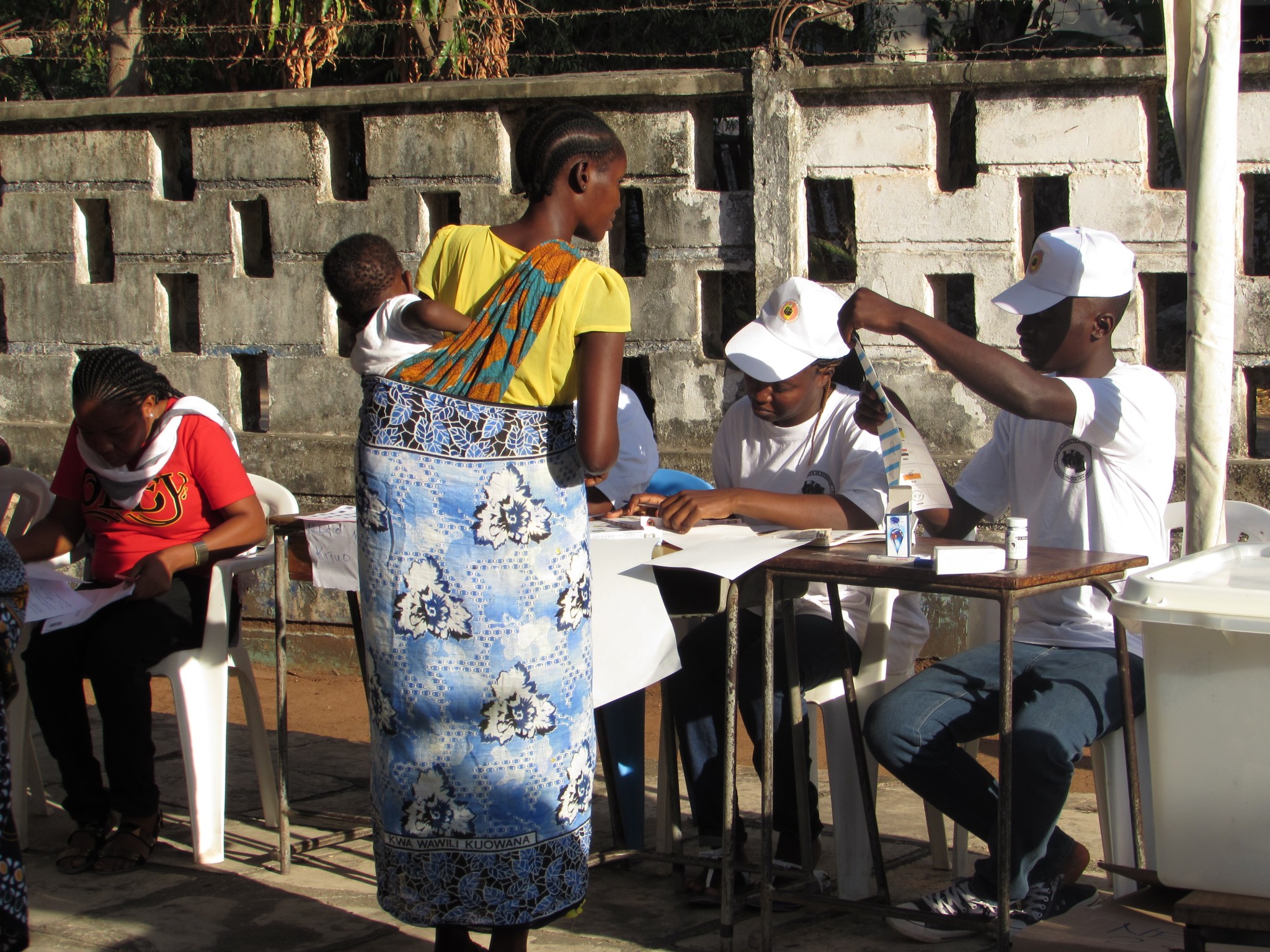IRI Gender Assessment in Tanzania Analyzes Women’s Political Participation

When asked to reflect on her participation in IRI’s gender assessment in Tanzania, Hon. Rachel Kamweru from Kenya said, “I learned you don’t have to be enclosed in a room to vote; even voting under a tree, democracy can prevail.”
The Women’s Democracy Network (WDN), an IRI initiative to increase women’s political participation, leadership and representation in elected office, assembled a team of African women leaders in Dar es Salaam, Tanzania, during the October 25, 2015 general elections to investigate and reflect on underlying issues that obstruct and promote gender equality in Tanzania’s electoral framework. The gender assessment team consisted of WDN participants from Kenya, Nigeria, Rwanda, and Tanzania working alongside several IRI staff.
The team utilized the 2015 general elections as an opportunity to provide greater clarity regarding challenges to women’s political participation in elections through data collection. Team members used IRI’s Election Day Gender Assessment Tool to observe women’s involvement at select polling stations in Dar es Salaam. The tool’s mixture of qualitative and quantitative measurements – ranging from observations of preferential treatment of certain voters, to the atmosphere surrounding individual polling units, to counts of voters waiting to cast their ballots – offered the assessment team a wide perspective on polling centers’ struggles and successes on Election Day, especially as they pertained to women voters.
The WDN team members noted how the experience built their own capacities and provided them with concrete examples to help them promote greater gender equity in their own country’s electoral processes. Ebere Ifendu, a WDN team member and political party leader from Nigeria, said, “While out in the field to observe elections, I witnessed women and people with special needs being given assistance where necessary. There were separate lines for women, the elderly and people living with disabilities. I experienced some of the things we have been campaigning for in my country.”
Team members observed a relatively calm and peaceful environment for women voters and noted that Tanzania has seen improvement in attitudes toward women in politics since the last elections in 2010. However, it is evident that Tanzanian women must still overcome many challenges to fuller political participation in their country. While there were few reports of election-related violence against women or physical harassment of women candidates in the lead up to the 2015 elections, several different sources cited abusive language toward women, particularly women candidates, as a broad concern. On balance, even though Tanzanian media watch groups reported continued inequality in coverage of men and women in election-related news stories, improvements were evident compared to previous elections.
In addition to identifying challenges and successes related to women’s participation in Tanzania’s elections, the WDN assessment team identified recommendations for Tanzanian stakeholders to implement regarding future elections. Please see the full report here.
Top